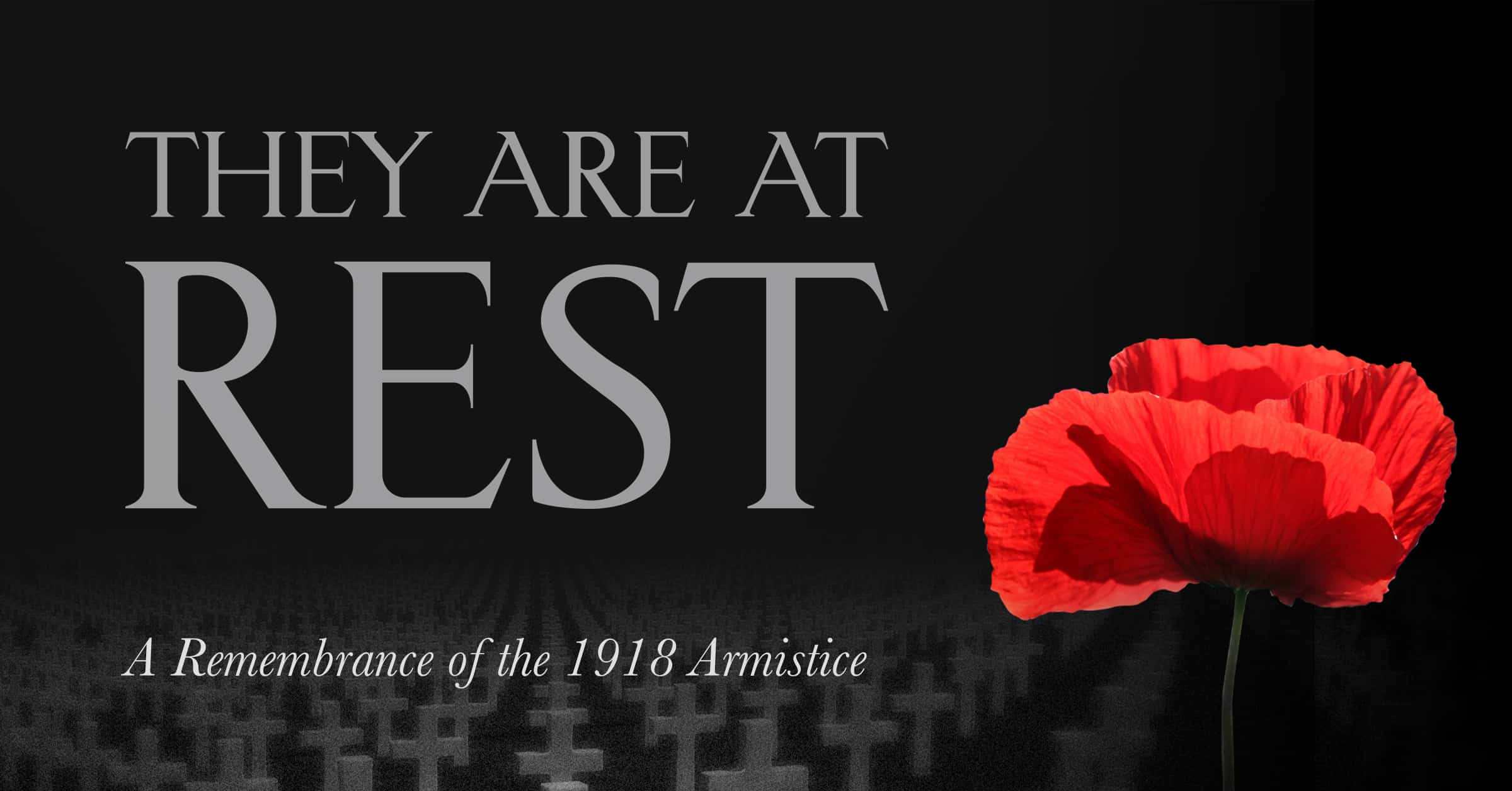
At the eleventh hour of the eleventh day of the eleventh month of 1918, an armistice was signed which brought to a close the greatest human conflict so far known to man. What had begun as a border dispute in the Balkan States of South-Eastern Europe in 1914, expected to last but a few weeks, had engulfed not only all the great powers of Europe but had also drawn into the conflict the United States, the British self-governing colonies of Canada and Australia, Japan, China and even South American states such as Brazil and Peru. Four years of trench warfare fought on the fields of Europe had practically wiped out a generation of young men with scenes of carnage scarcely believable to those waiting at home for news of their loved ones.
The Armistice was signed by representatives of Germany on one side, and Allies represented by France and Britain on the other. However, one of the prime movers in the negotiations to end the war was President Wilson of the USA. It will be for historians rather than musicians to debate whether the punitive conditions imposed on Germany in the subsequent Treaty of Versailles sowed the seeds for the Nationalistic ideals which brought to power Hitler in Germany and Mussolini in Italy, and led to the catastrophic events of the Second World War.
In contrast, the early years of the 20th century, up to 1914, saw a flowering of artistic creativity in a Europe which is now regarded as the end of an era. As the British Foreign Secretary Sir Edward Grey commented in August 1914: “the lamps are going out all over Europe, we shall not see them lit again in our lifetime.”
In Britain, in the period before 1914, there was something of a resurgence of musical talent, with composers such as Elgar, Parry and Stanford, supported by an affluent society enjoying a thriving economy and in a position to provide patronage. The same sort of thing was going on in France and elsewhere in Europe. And it was not confined to music: the visual arts too were enjoying something of a boom, and the decorative arts were giving us Art Nouveau houses and furniture, and the most wonderful textiles and fashions which had, in England at least, blossomed after the period of mourning for the passing of Queen Victoria (when everything had to be black!). One can only speculate on what our predecessors might have enjoyed if the lights had not gone out.
While the USA played a hugely important part in both World Wars, as allies of the Western European powers, being geographically situated across the Ocean its population did not experience the same degree of deprivation and destruction as did its European neighbours.
When planning tonight’s programme we looked first, unsurprisingly, at works written in Britain to commemorate the Armistice and the bringing of peace. In fact, there seems to be very little directly composed in celebration of the Armistice. After four years of such bloody conflict it appears there was little appetite for anything that could be described as celebratory. And of course armistices generally happen at short notice so you do not have lots of composers gearing up to write something, as you might have for a Royal Wedding!
Edward Elgar, who was Master of the King’s Music at the time, spent most of 1918 writing wonderfully introspective chamber music (possibly also being clinically depressed) and apparently decided not to attend the victory celebrations in London but instead retired to his cottage in Sussex.
What we do have is some wonderful music written either during the war years, or shortly before and afterwards, which reflects the response of composers to the changing times in which they were living. The pieces we include which were written beforehand were still being regularly performed during the war years, and those written later were inspired by the tragic circumstances of the war years.
—By Guy Protheroe & Ann Manly Protheroe


You must be logged in to post a comment.